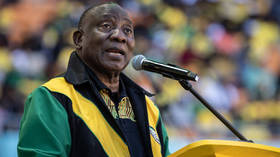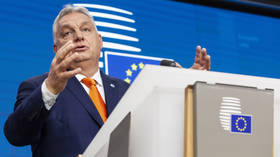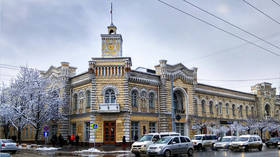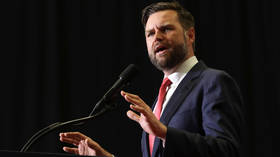South Africa’s ruling party holds coalition talks
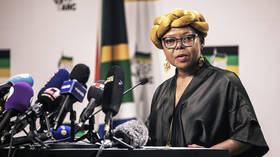
South African officials have met with five political parties to discuss the possibility of forming a coalition government, the ruling African National Congress (ANC) announced on Wednesday, after losing its parliamentary majority in last week’s elections.
ANC spokesperson Mahlengi Bhengu-Motsiri told reporters that “exploratory” talks have been held with the country’s largest opposition group, the Democratic Alliance (DA), the far-left Economic Freedom Fighters (EFF), and three other smaller parties – the National Freedom Party (NFP), the Patriotic Alliance (PA), and the Inkatha Freedom Party (IFP).
However, she stated that no final decision has been reached and that negotiations are still in their early stages.
“The ANC has repeatedly reached out to the MKP [Umkhonto Wesizwe Party] for an engagement meeting, with no positive response,” Bhengu-Motsiri said.
According to results announced by the Independent Electoral Commission (IEC) on Sunday, the ANC obtained 40.18% of the vote in the National Assembly and regional parliamentary elections held on May 29. It won 159 seats in the 400-seat parliament, down from 230 in the previous election.
It is the first time the ANC has lost its majority since Nelson Mandela led the party to victory in the first democratic elections after Apartheid ended in 1994. Opponents have accused the government of failing to fulfill its “better life for all” promise, citing persistent crime, poverty, and high unemployment rates in Africa’s most industrialized economy.
The center-right DA received 22% of the vote, equating to 87 seats; former President Jacob Zuma’s left-wing MK won 15%, with 58 seats; and the radical Economic Freedom Fighters received 9%, taking 39 seats.
“The results indicate that the South Africans want all parties to work together, because no party received an absolute majority to form a government alone at national level, in Gauteng and in KwaZulu-Natal,” the ANC spokesperson stated on Wednesday.
The ANC said it has discussed various alliance options, including forming a government of “national unity” with parties interested in contributing ideas on how to collectively move the country forward while preserving “constitutional democracy.”
South African leader Cyril Ramaphosa is running for a second term, and some sort of agreement must be reached to allow parliament, which convenes in less than two weeks, to elect a president.
Analysts cited by the Associated Press (AP) have warned against the ANC’s move to form a coalition with the DA and the MK and EFF – the latter two of which were formed in 2013 and 2023, respectively – after their founding leaders broke away from the ANC.
The ruling party risks alienating some of its key and traditional supporters if it enters into an alliance with the three major opposition parties, the analysts reportedly claimed.
Meanwhile, the MK Party, which repeatedly accused the government of intimidation in the run-up to the elections, has declared that it will “not negotiate with the ANC.”
